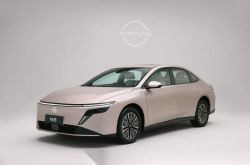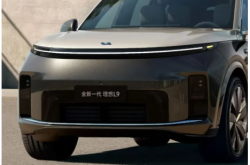HP plans to move 50% of production capacity out of China? HP responds: I haven't, don't bullshit
![]() 08/12 2024
08/12 2024
![]() 488
488
A few days ago, Nikkei Asia reported that global PC giant HP is planning to relocate its production capacity from China, even setting a goal to relocate up to 70% of its production capacity within the next 3-5 years to mitigate risks.
This news immediately went viral, as last year another major PC manufacturer also proposed a similar plan to relocate production capacity from China, resulting in a significant decline in sales in China for that company... that company was Dell.
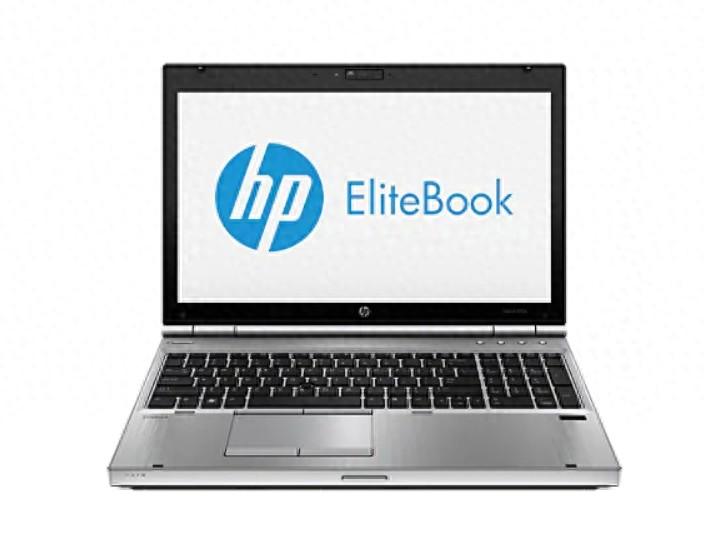
How badly did Dell suffer? In 2023, its sales in the Chinese market plummeted by 44%, dropping from the top three to fifth place.
And in the first quarter of 2024, Dell continued to decline, falling out of the top five in the Chinese market. It can be said that Dell was completely harmed by the rumors of relocation.
But did Dell ever say anything like that? The official has not made any statement, and it seems that the rumor originated from a certain media outlet. Later, Wu Dongmei, Dell's global vice president, had to come out to refute the rumors, saying, "We have never released any information or comment claiming that Dell's supply chain will evacuate China. These rumors are absolutely 'false rumors.'"
In fact, it seems that Dell has not carried out any relocation plans and is still manufacturing a large number of PCs in China, with no changes in production.
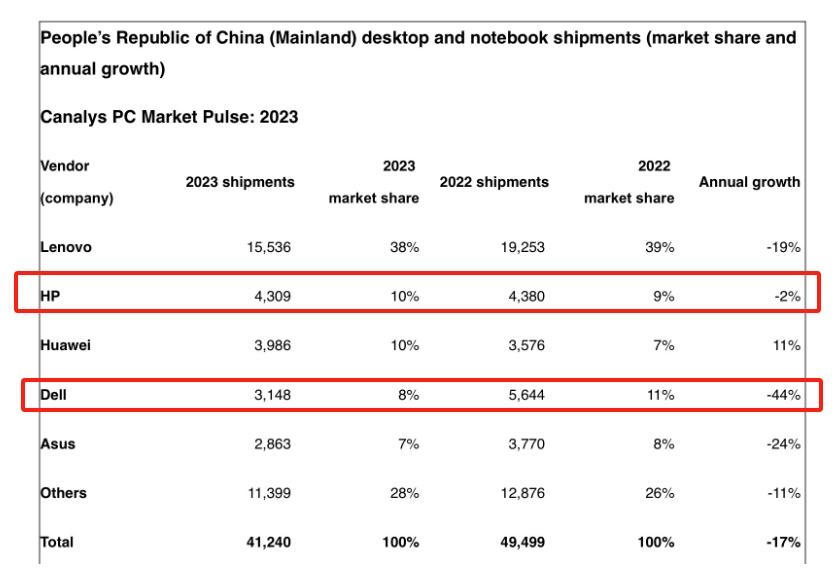
Dell ranks fifth, HP second in China's PC market in 2023
Naturally, HP was alarmed when such rumors emerged, especially after Dell's example. What if HP also experiences a significant decline in sales in the Chinese market?
Therefore, HP quickly came forward to respond, stating that these are rumors. China is an indispensable part of HP's global supply chain, and we are firmly committed to our operations and development in China.
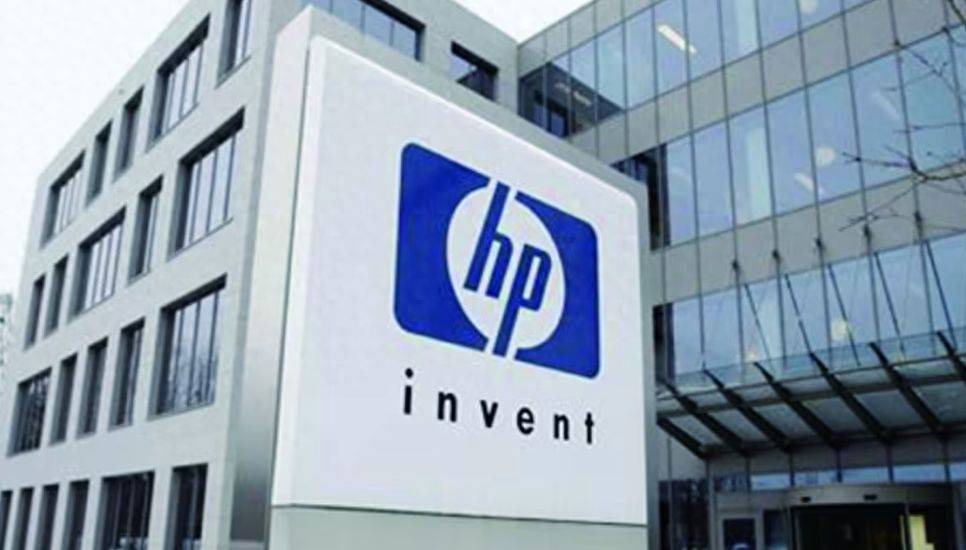
In fact, it is clear to everyone that Dell and HP are unlikely to take such actions.
Why is that? First, the Chinese market is still a huge market. HP and Dell previously had very high sales in the Chinese market and are reluctant to give it up. Everyone knows the consequences of such actions.
Second, the advantages of Chinese manufacturing are quite obvious. China not only has a mature and complete labor force and a sound industrial system but also boasts high efficiency and low costs. At present, no other place in the world can replace China in manufacturing, so HP and Dell really don't need to relocate.
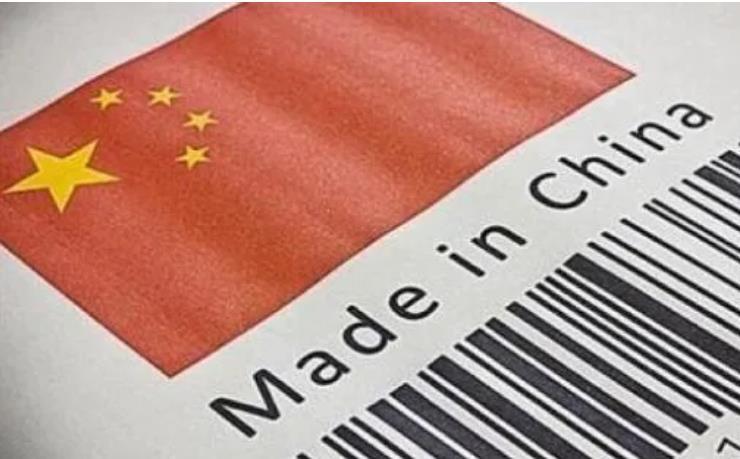
Regarding ensuring supply chain security, this is somewhat ridiculous. The PC industry doesn't have many core technologies to speak of. Everyone uses CPUs from INTEL/AMD, memory from Samsung/Micron/SK Hynix, SSDs from various manufacturers, and operating systems from Microsoft... PC manufacturers rarely have their own core technologies.
The essence of the PC industry is assembly, integrating the global supply chain to assemble a computer and slap their own logo on it. There aren't many core technologies involved; the core lies in supply chain integration, management, quality assurance, after-sales service systems, and so on.
Therefore, supply chain security is not that important, and these things are not restricted. So, this is merely a media speculation. Even if the other party does have such plans, they wouldn't disclose them publicly.
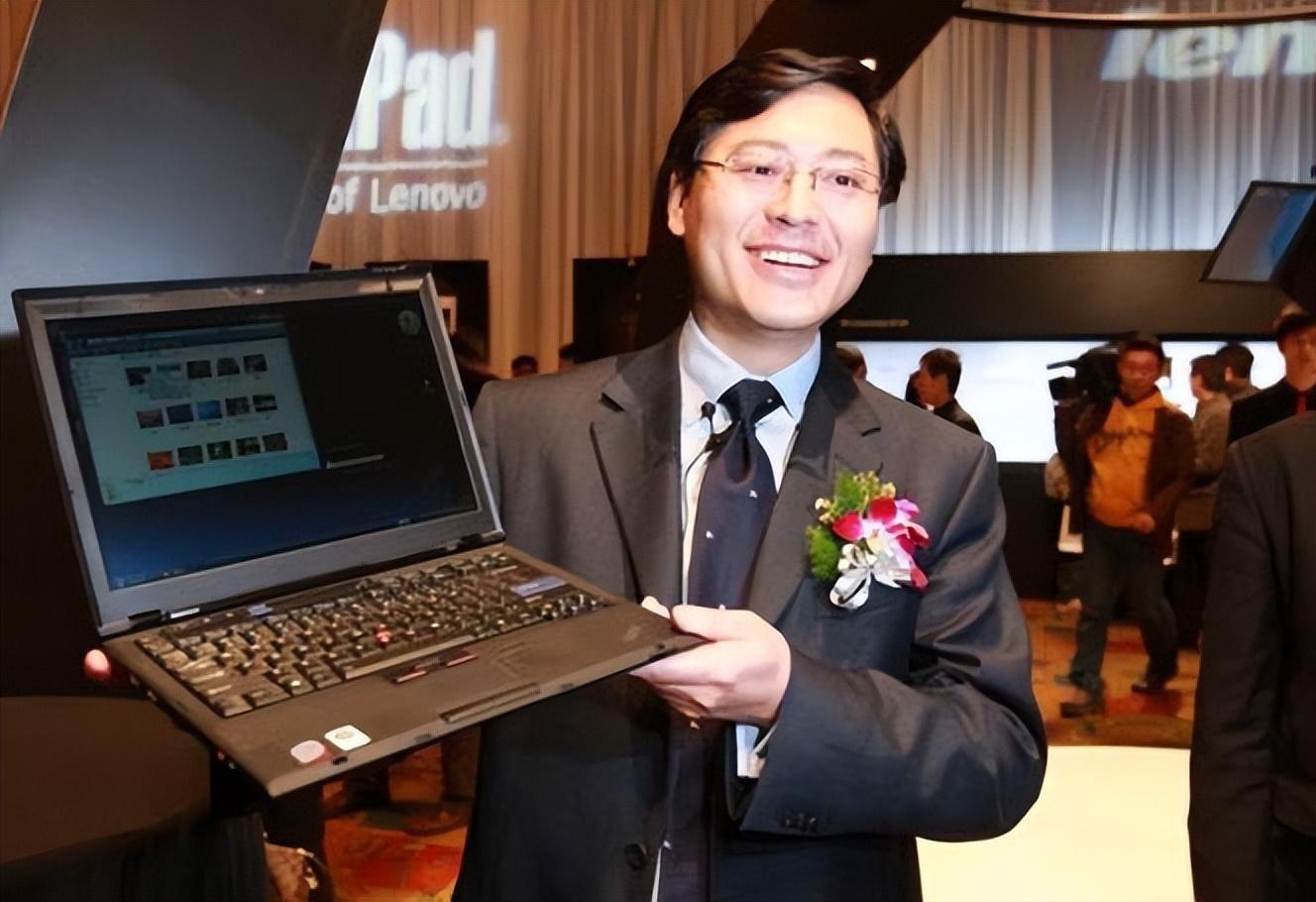
But honestly, regardless of whether such rumors are true or false, domestic PC manufacturers will still benefit to some extent. Since PC products are highly replaceable, many people will naturally support domestic brands upon hearing such rumors. What do you think?
So, I speculate that the market share of domestic PCs will likely increase in the future. Whether HP's share will decline remains to be seen; we'll have to wait for the data from Q3 and Q4.



